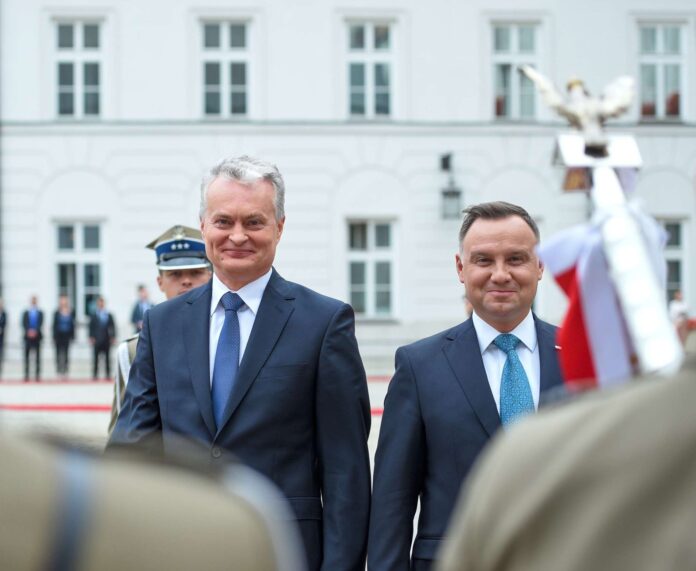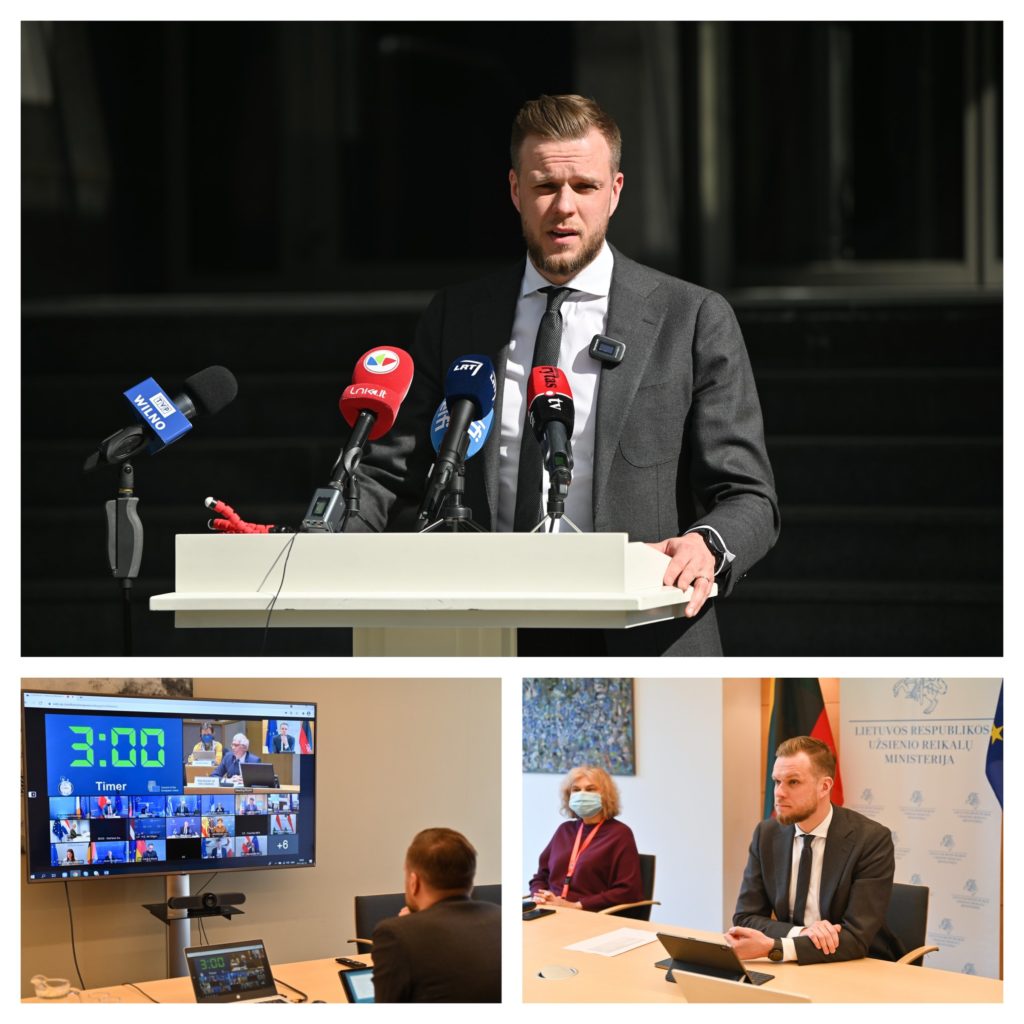
Presidential Statements
On April 16, Lithuanian President Gitanas Nauseda and his Polish counterpart, Andrzej Duda, called on Russia to immediately withdraw its troops from the border with Ukraine.
“We are calling on Russia to immediately withdraw its forces from the Ukrainian-Russian border, to implement the Minsk agreements and to cooperate with Ukraine based on international law and mutual respect,” Nauseda said in a press release.
In a phone call, the two leaders discussed the situation in Ukraine and joint actions at the NATO, EU and regional levels to deter Russia from escalating the situation. Ukraine is accusing Russia of massing thousands of troops near its eastern border and in the annexed Crimean peninsula. Reports of a military build-up have emerged amid an escalation of bloody clashes between Ukraine’s forces and Russia-backed separatists. Moscow says it has sent troops to its western border for exercises in response to NATO’s “threatening” actions.
The Lithuanian leader emphasized the need to ensure that Belarus’ Astravyets nuclear power plant, which Vilnius says is unsafe, meets international nuclear safety and environmental protection requirements. The two presidents also discussed the pandemic situation in their countries and progress in vaccinating their populations against the coronavirus.
Foreign Affairs Ministers Agee
On April 19, Lithuanian foreign affairs minister Gabrielius Landsbergis participated in a video conference of EU Foreign Affairs ministers focusing on Russia’s agressions against Ukraine and other matters. The ministers expressed their strong support for Ukraine’s sovereignty and discussed a possible joint EU response to Russian agression. Landsbergis highlighted the significant progress made by Ukraine in its reform process, and urged the EU to strengthen its support for the implementation of anti-corruption and judicial reforms. On behalf of Lithuania and Estonia, the Foreign Minister expressed his concerns over the deterioration in Alexei Navalny’s health since his imprisonment by the Kremlin.
Landsbergis voiced his support for the Czech Republic, which had expelled 18 Russian spies operating as diplomats (Moscow has expelled 20 Czechs in a retaliatory move). He also drew attention to the deteriorating situation in Belarus, where the number of political prisoners is growing daily. The Belarusian regime has labelled opposition leaders as terrorists.
Extremism in Belarus
Belarusian lawmakers have approved a second reading of several amendments to legislation severely restricting civil rights and the free flow of information amid a crackdown on the country’s pro-democracy movement. The bills approved by members of the lower house on April 16 define a broad range of activities as “extremist”, providing additional ammunition for authorities to use draconian tactics to target and intimidate protesters and opposition forces challenging the official results of a presidential election last year that handed authoritarian ruler Alexander Lukashenko his sixth consecutive term.
In the wake of the election, thousands of Belarusians took to the streets in the largest and most-persistent show of opposition to Lukashenka. More than 33,000 people have been arrested in a crackdown that has left much of the opposition leadership in exile or prison.
The European Union, the United States, and other nations have refused to recognize the declared election results and slapped sanctions on Lukashenka and other senior Belarusian officials.
According to the amendments, any activities by individuals, political parties, or domestic or international organizations defined as undermining independence, sovereignty, the constitutional order, and public safety will be considered as “extremist”. If approved and signed into law, the amendments would ban lawyers from defending people in some criminal and administrative cases. Most of the lawyers who worked with the Belarusian Association of Journalists and have defended Radio Free Europe/Radio Liberty reporters in recent months have already been stripped of their licenses.
The proposed changes also say that the following actions will be considered as extremist activities: the distribution of false information; insulting an official; discrediting the state; impeding activities of the Central Election Commission and other state organs; and participating in or organising unauthorised mass protests. One passage of the amendments says that any materials promoting unsanctioned public events that can be read, sung, or shown will be considered as “extremist symbols”. That includes portraits of anyone who was legally found to be an extremist.
In other parts, amendments to the law on media will allow authorities to shut down media outlets after they receive warnings if their activities pose a “threat to the country’s national security”. The amendments also expand the ability of authorities to limit access to online publications if they carry information banned for distribution and refuse to follow requests by officials to address violations.
With news from LRT.lt, RFE/RL and urm.lt






























